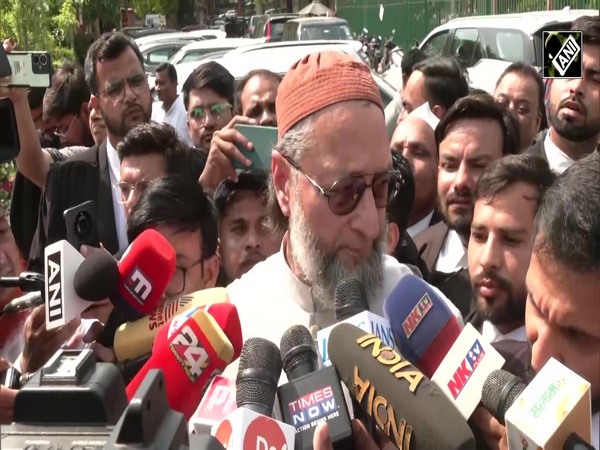
No public Easter celebrations in Bethlehem amid 'double standard' claims
Apr 19, 2025
Tel Aviv [Israel], April 19 (ANI/TPS): As Christians in the Palestinian Authority are forced to forego traditional public celebrations of the Easter holiday for the second consecutive year, one Palestinian Christian told The Press Service of Israel his community faces a double standard.
"Due to the difficult, exceptional circumstances and the severe situation during wartime, it has been decided to cancel all activities and celebrations of the traditional Easter holiday this year," the Greek Orthodox Patriarchate of Bethlehem announced on Monday.
But L., a Palestinian Christian from the nearby town of Beit Jala, told TPS-IL that recent public celebrations of Ramadan were not scaled back. He did not give his name in fear for his safety.
"A few weeks ago, there were Ramadan celebrations--people filled the streets, shops were open, traffic was backed up," L. said. "Just recently, they inaugurated a new mall in Ramallah with music, ministers, and official delegations from the Palestinian Authority. But when it comes to us Christians, the approach is different."
Easter, L. insisted, "is not like celebrating a football game -- this is the biggest feast for the Christian community around the world. Without the Resurrection, there is no Christianity. It's even more important than the birth of Christ because it's the fulfillment of the entire message."
According to the Greek Orthodox Patriarchate, only prayers and religious ceremonies inside the church will take place. The traditional Holy Fire procession from Jerusalem will arrive at Manger Square but will continue directly into the Church of the Nativity without customary public celebrations.
"I long to see the normal celebrations return -- the church and school scout processions with drums and flutes. People used to flock to Beit Jala to receive the Holy Fire. The wide road in front of the church made it a perfect place for celebration," L. told TPS-IL.
Christians in both the Palestinian Authority and Gaza face harassment, extortion, forced conversions, and even abductions. TPS-IL reported that Christianity is being erased from Palestinian Authority curriculum in December.
Meanwhile, the Jerusalem Initiative and the Shai Fund have stepped in to support local Christian families. The two organizations provided shopping vouchers for people to use at local Christian-owned supermarkets. The Jerusalem Initiative is a Jerusalem-based non-profit that encourages Arab Christian integration into Israeli society. The Shai Fund is a U.S.-based charity organization.
"We are helping 120 families in Bethlehem, Beit Jala and Beit Sahour this Easter because the very birthplace of Christianity is witnessing a heartbreaking exodus of its Christian community," said Charmaine Hedding, President of the Shai Fund and Board Member of Jerusalem Initiative.
The Palestinian Christian community has been steadily shrinking since 1995, when the Palestinian Authority was established.
While Christians comprised 11 per cent of the population of the entire Holy Land in 1922, today, they account for just 1 per cent of the population in the Palestinian Authority. Christians made up 86 per cent of Bethlehem's population in 1950. As of 2017, when the last Palestinian census was taken, Christians made up just 10 per cent of the city's population.
"Families are being driven out by ongoing discrimination, economic hardship, and instability. If we don't act now, we risk losing the Christian presence in the place where it all began," Hedding told TPS-IL.
Elias Zarina, co-founder and community manager of the Jerusalem Initiative, told TPS-IL, "As Arabic-speaking Israeli Christians, we have a duty to support the remaining Christian communities in these areas, as they face a systematic effort--backed by radical groups--to erase their heritage."
He called on the European Union, the United States and Christian nations to take a more active role in preserving the Christian presence in the Holy Land.
"Instead of facilitating Christian emigration, support should focus on ensuring dignity, economic empowerment, and long-term resilience within these communities," Zarina told TPS-IL. (ANI/TPS)


























